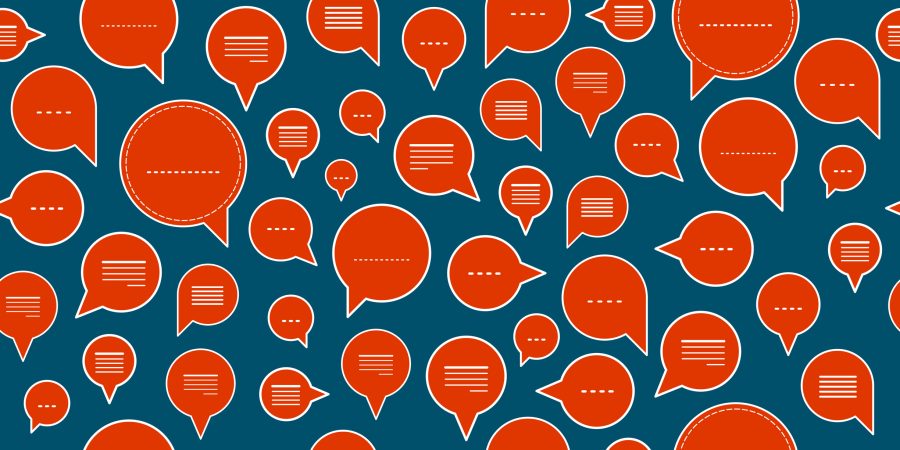Why Do Some People Not Challenge Misinformation on Social Media?

Researchers from the Faculty of Science and Technology at Bournemouth University and the College of Science and Engineering at Hamad Bin Khalifa University
Selin Gurgun, Professor Raian Ali
Vast amounts of information is shared every day across the internet by billions of users.
As of April 2022, 4.7 billion people (or 59 percent of the world’s population) were social media users, with this number projected to increase to almost six billion in 2027.
However, not all information is created with equal quality and veracity.
According to a study by the Centre for International Governance and Ipsos, 67% of internet users claimed that they encountered fake news, or ‘misinformation’, while on Facebook, the most popular social network site in the world.
However, despite the prevalence of misinformation social media users are reluctant to correct false information when they see it.
So why is this a problem? Despite our generation’s advanced computing abilities, one of the most effective ways to counter misinformation online is by using individuals’ capacity to deliver “social corrections”.
Quite literally, this means one person correcting another person on social media, when they spot a comment or idea that is false.
It has been shown that social corrections are as effective as algorithmic corrections, yet one study has shown when social media users observed others sharing misinformation, almost 80% did not correct them.
Despite a shared belief that the online environment is a place to speak freely, in reality users regularly refrain from sharing their opinions if they feel their own point of view is not widely shared. They are generally inhibited from posting content about political and social issues, commenting on questionable news and correcting misinformation.
Only one fifth of social media users who encounter misinformation take action. Similar results were found in recent studies conducted in the USA that examined the correction misinformation concerning COVID-19 on social media. Of the 56.6% who indicated they had encountered misinformation, only 35.1% stated they had corrected it.
Why Don’t Social Media Users Take Action?
After studying the literature regarding why people might stay silent online, our team identified six characteristics that appear to present in situations where an individual does not engage with misinformation: self-oriented, relationship-oriented, others-oriented, content-oriented, individual characteristics, and technical factors.
Following this, we conducted a survey with 250 participants from the UK to better understand whether these observations reflected reality, and uncover further reasons why some people do not challenge misinformation.
The results are yet to be published, and here we present some early findings.
Barriers To Challenging Misinformation on Social Media
When participants were asked which of the reasons would apply to them when they do not challenge misinformation, the most common reason cited was that they do not think they have enough information to do so.
The second reason is the fear of aggressive reactions from others and the third most frequent reason was that they do not want to be viewed as someone who causes trouble.
The results also indicated that women are less likely to challenge misinformation than men.
This result is in line with previous research indicating that when compared to men, women are less likely to express their opinions on social media.
Another important finding emerging from our study is that people overestimate the impact of challenging others.
There is a discrepancy between their actual attitude and behaviour when they are being challenged and their perception when they challenge others. To illustrate, the extent to which respondents agreed that they feel offended when they are challenged is lower than the extent to which they perceive others to feel offended.
The full study findings are being prepared and will be soon published.
How to Encourage People to Challenge Misinformation
Identifying the barriers is the first step toward overcoming them.
Just as there is no one single cause to prevent users from challenging misinformation, there is no one-size-fits-all solution to tackle the problem.
One of the potential solutions involves designing additional features on social media that encourage people to challenge misinformation.
The existent features and affordances of social network sites influence people’s decision to engage with the contents on their feed. Therefore, we suggest, providing users tools and technologies that facilitate challenging misinformation may encourage them to do so. For example, providing users with some pre-written stickers that question the content such as “Did you fact check the information?”. Such depersonlised tools may motivate users to challenge misinformation in real time. Surfacing cognitive sticker reactions, such as the “thinking face” (a face looking upwards with thumb) instead of more emotional ones, may also motivate people to challenge misinformation.
One approach often used to change human behaviour is rewarding desirable behaviour, which also serves to support the emergence of norms. If for example, some group members engage in behaviour that is rewarded and seen by the rest of the group, most observers will anticipate receiving the same or comparable rewards if they follow. Therefore, in order to establish appropriate norms for users to challenge misinformation, rewarding users might help. Displaying how acceptable it is to challenge might also overcome the barriers that make people reluctant to challenge misinformation.
Conclusion
Speaking out in the online environment is not an easy task, especially on social media where users who share similar views form a shared narrative that creates “echo chambers” or where algorithms keep users in “filter bubbles” that prevent them from being exposed to opposing points of view.
However, we need to understand that the benefits of speaking out outweigh the risks. The ability to evaluate information, analyse it, draw inferences and criticise if necessary is important in the digital sphere, especially in the ‘post-truth’ era where public opinion is shaped more by personal beliefs than facts and evidence.
